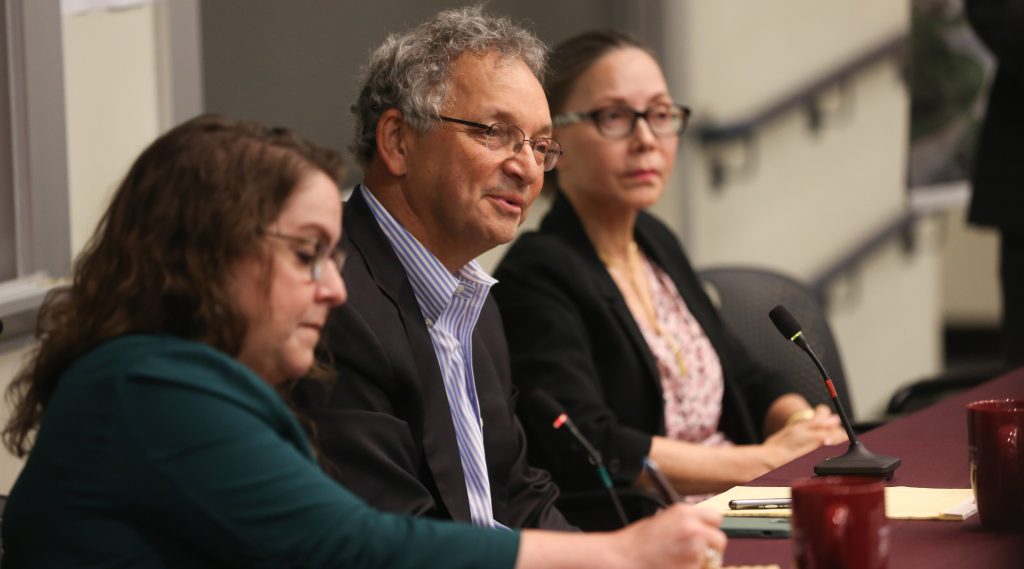Many new law students are confronted with the important decision of whether to pursue a public sector career in government or head into private legal practice. Most of the anxiety stems from the foreboding feeling that once the choice has been made, the rest of their life has been decided—and all before they’ve even received their JD.
A panel of legal practitioners did their best to assuage that fear at a presentation hosted by the Rappaport Center for Law and Public Policy on September 13. The discussion, “Rewarding Careers Interweaving Public, Private, and Nonprofit Sectors,” was moderated by BC Law Adjunct Professor Glenn Cunha, who served two terms as Massachusetts Inspector General and has years of experience across the public and private sectors. The program was co-sponsored by the BC Law Career Services Office and the BC Law Criminal Law Society.
Vanessa Vélez, deputy chief counsel at the Committee for Public Counsel Services (CPCS), cited an oft-repeated adage at the onset: “If you choose a job you love, you’ll never have to work in your life.” CPCS provides legal representation to indigent persons through a combination of staff attorneys and private practitioners who donate their time and efforts for the public welfare. “I really encourage you to consider a career in public service because I’ve found it extremely rewarding,” Vélez said.
Lon Povich, currently counsel at the firm Anderson & Kreiger, had a storied career in the public sector before moving to private practice later in life. At different points, he served as chief legal counsel to Massachusetts Governor Charlie Baker, federal prosecutor in the US Attorney’s Office, and general counsel to BJ’s Wholesale Club. “If it’s not your dream job, is it a step closer to getting your dream job?” Povich asked. “Every new opportunity is a learning process, and if you build good relationships, you’ll set yourself up for eventual success.”
Genevieve Nadeau works at the nonpartisan, nonprofit Protect Democracy, which aims to curb authoritarian, anti-democratic impulses in the US and abroad. In 2008, she left a cushy big law position to join the Obama presidential campaign and never looked back. “I never quite knew where I was going, or what my plan was,” she said. “I kept an open mind and tried to make meaningful choices.” That attitude, Nadeau maintained, granted her the flexibility to adapt and grow not just as a legal professional, but as an individual.


